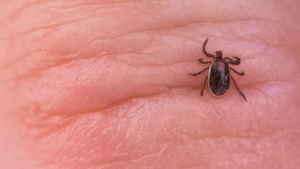French medical professionals are raising concerns about the presence of cadmium, a toxic heavy metal, in common foods like bread, potatoes, and cereals. This contamination primarily occurs through phosphate fertilizers and presents a significant health risk, especially for young children.

Cadmium exposure has been linked to severe health issues, including cancer and kidney damage. Experts urge swift government action, including stricter regulations, public awareness campaigns, and improved school lunch programs. Failure to act could result in long-term health consequences for future generations.
The Union Régionale des Professionnels de Santé (URPS), a French medical association, issued a press release warning of a potential "explosion of contamination in young children," emphasizing the susceptibility of children due to diets high in starchy foods and grains.
Cadmium is a highly poisonous heavy metal, and long-term exposure during childhood can have detrimental health effects. The metal tends to accumulate in the body, making early exposure particularly dangerous.

Cadmium is a naturally occurring element that becomes hazardous when it accumulates in the body. Its presence in phosphate fertilizers leads to crop absorption through their roots, thereby entering the food chain. Industrial activities and improper waste disposal practices contribute to increased cadmium levels in soil and water. Tobacco smoke is also a significant source of cadmium exposure.
Extensive research connects cadmium exposure to various severe health conditions:
Data from ANSES, France’s food and environmental safety agency, reveals a concerning trend:
Young children are particularly vulnerable due to their smaller size and diets that include more grain and root-based foods.
The European Union has banned phosphate fertilizers containing more than 60 mg/kg of cadmium. However, many experts believe this limit is still too high. While some EU nations have implemented stricter national limits, France, a major consumer of phosphate fertilizers, has not. This lack of action has sparked criticism from health professionals who advocate for stronger regulations.
A 2023 study by Euronews identified the top five EU countries with the most food-related cadmium alerts between 2000 and 2022:
These findings indicate that cadmium contamination is a widespread European concern.
URPS physicians urge the French government to take immediate and comprehensive action to address this public health risk. Their recommendations include:
The doctors also pointed to the United States' success in lowering cadmium levels through improved sewage sludge management in agriculture.
Cadmium remains in the body for extended periods, accumulating in tissues such as the liver and kidneys. The toxic effects may take decades to manifest fully, making it challenging to directly link health issues to cadmium exposure. However, scientific evidence clearly supports taking proactive measures to minimize long-term harm.
Newer articles
Older articles
 Vijay Officially Named TVK's Chief Minister Hopeful for Tamil Nadu's 2026 Election
Vijay Officially Named TVK's Chief Minister Hopeful for Tamil Nadu's 2026 Election
 RJ Mahvash Prioritizes Work Over Buzz, Addresses Link-Up Speculation
RJ Mahvash Prioritizes Work Over Buzz, Addresses Link-Up Speculation
 UNESCO's World Heritage Wonders: Unveiling 10 Iconic Sites, From Petra to the Pyramids
UNESCO's World Heritage Wonders: Unveiling 10 Iconic Sites, From Petra to the Pyramids
 JPG to PDF: A Comprehensive Guide for Graphic Designers & Professionals
JPG to PDF: A Comprehensive Guide for Graphic Designers & Professionals
 iQoo Z9 Turbo: Rumored Specs Emerge – Snapdragon 8s Gen 3, 6000mAh Battery Highlighted
iQoo Z9 Turbo: Rumored Specs Emerge – Snapdragon 8s Gen 3, 6000mAh Battery Highlighted
 Shadman Islam Defends Bangladesh Batters After Day 1 Struggles Against Sri Lanka
Shadman Islam Defends Bangladesh Batters After Day 1 Struggles Against Sri Lanka
 England's Bold Claim: Could They Have Chased Down 450 Against India?
England's Bold Claim: Could They Have Chased Down 450 Against India?
 5 Often-Missed Warning Signs of Bladder Cancer You Need to Know
5 Often-Missed Warning Signs of Bladder Cancer You Need to Know
 KL Rahul Puts Country First, Prioritizes England Tests Over Newborn Child
KL Rahul Puts Country First, Prioritizes England Tests Over Newborn Child
 Tick Bite Paralyzes Fitness Influencer: A Wake-Up Call for Outdoor Enthusiasts
Tick Bite Paralyzes Fitness Influencer: A Wake-Up Call for Outdoor Enthusiasts